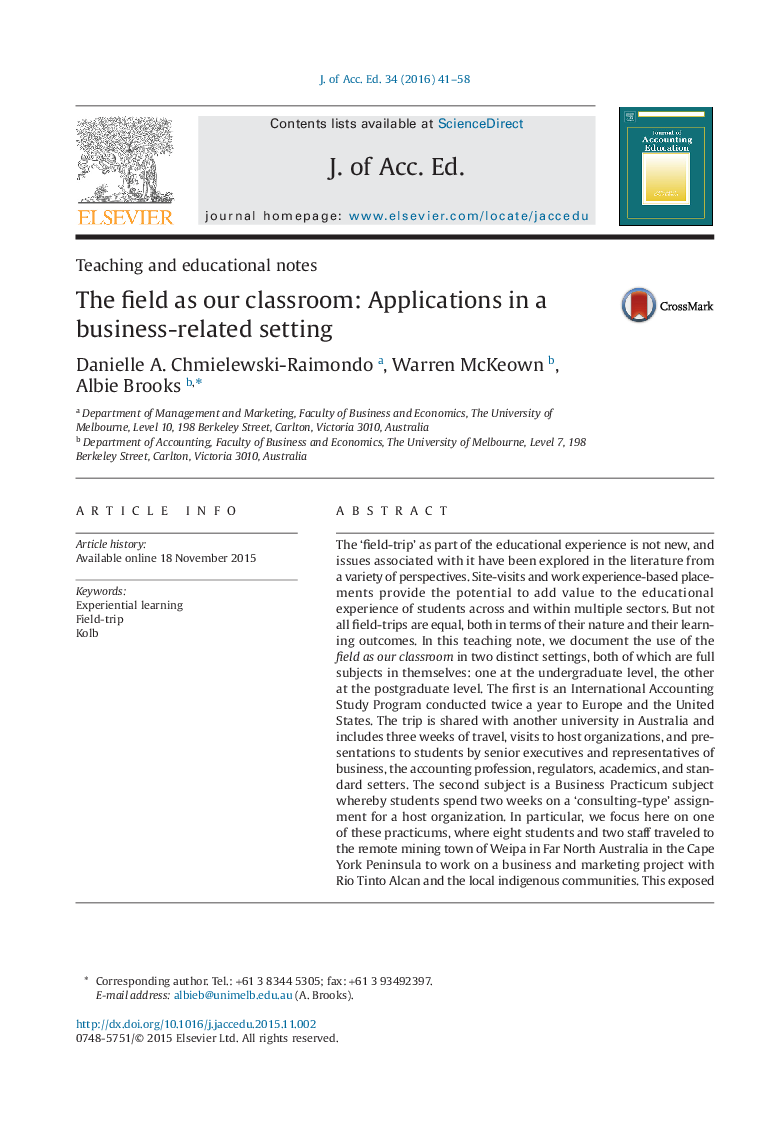| Article ID | Journal | Published Year | Pages | File Type |
|---|---|---|---|---|
| 359356 | Journal of Accounting Education | 2016 | 18 Pages |
•We document two field-trips (both are full subjects) in two distinct settings.•We use the theoretical lens of Kolb's Experiential Learning Model as a framework to guide our discussion of each field-trip.•We illustrate the enhanced, varied learning and experiences of each program.•We provide practical guidance for pursuing similar experiential learning activities.
The ‘field-trip’ as part of the educational experience is not new, and issues associated with it have been explored in the literature from a variety of perspectives. Site-visits and work experience-based placements provide the potential to add value to the educational experience of students across and within multiple sectors. But not all field-trips are equal, both in terms of their nature and their learning outcomes. In this teaching note, we document the use of the field as our classroom in two distinct settings, both of which are full subjects in themselves: one at the undergraduate level, the other at the postgraduate level. The first is an International Accounting Study Program conducted twice a year to Europe and the United States. The trip is shared with another university in Australia and includes three weeks of travel, visits to host organizations, and presentations to students by senior executives and representatives of business, the accounting profession, regulators, academics, and standard setters. The second subject is a Business Practicum subject whereby students spend two weeks on a ‘consulting-type’ assignment for a host organization. In particular, we focus here on one of these practicums, where eight students and two staff traveled to the remote mining town of Weipa in Far North Australia in the Cape York Peninsula to work on a business and marketing project with Rio Tinto Alcan and the local indigenous communities. This exposed staff and students to a business environment whereby a set of specific deliverables were expected of the students in an environment of cultural sensitivity. Using the theoretical lens of Kolb's (1984) Experiential Learning Model (ELM) as a framework to guide our discussion, this paper details each program, before highlighting the students' learning experience with respect to the four stages of the ELM. We draw on student reflections, assessments and host feedback to illustrate the enhanced and varied learning and educational experiences of such field-based settings. Moreover, we provide practical guidance for others wishing to pursue similar experiential learning experiences for their students.
